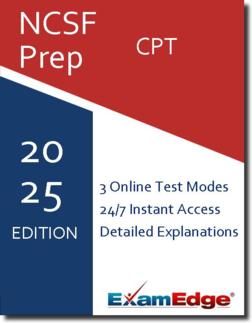NCSF CPT (NCSF-CPT) Practice Tests & Test Prep by Exam Edge - Blogs
Based on 32 Reviews
- Real Exam Simulation: Timed questions and matching content build comfort for your NCSF CPT test day.
- Instant, 24/7 Access: Web-based NCSF Personal Trainer Certification practice exams with no software needed.
- Clear Explanations: Step-by-step answers and explanations for your NCSF exam to strengthen understanding.
- Boosted Confidence: Reduces anxiety and improves test-taking skills to ace your NCSF Personal Trainer Certification (NCSF-CPT).



